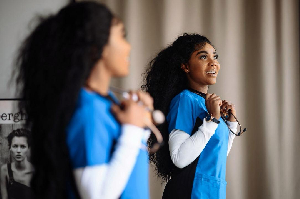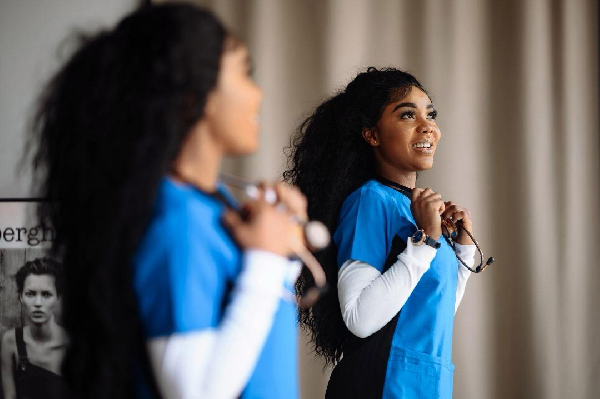 Dr Paulina Mefia Denteh is the author
Dr Paulina Mefia Denteh is the author
The Silent Epidemic
In the vibrant Kejetia market, women like Afia, a 43-year-old trader, are unaware of the dangers of cervical cancer. Many women in West Africa have never been screened, viewing cancer as a distant issue. Yet, cervical cancer claims over 28,000 women annually in the region—equivalent to filling Accra Sports Stadium to capacity. The disease is preventable and treatable if detected early, but countries like Guinea, Mali, and Burkina Faso face death rates up to 18 times higher than in the West. Each statistic represents a mother, teacher, or community pillar whose loss devastates families.
Now, technology is transforming healthcare, offering new hope in the fight against cervical cancer.
The AI Promise
Artificial Intelligence (AI) is proving transformative in cervical cancer care, with applications including:
1. Mobile Visual Assessment
– Community health workers in rural Senegal use smartphone attachments to capture cervical images, analyzed by AI with 90%+ accuracy.
– Previously, women traveled days for specialist care; now, results are delivered in minutes, identifying high-risk cases early.
2. Predictive Analytics
– Researchers at the University of Ibadan use AI to predict cancer risk years before symptoms appear by analyzing genetic, environmental, and behavioral data.
– This targets limited healthcare resources to those most in need.
3. Cloud-Based Consultation Networks
– Nurses in remote areas (e.g., rural Guinea) upload patient data to AI platforms, receiving rapid assessments and specialist input from global volunteers (e.g., Accra, Baltimore).
– This expands local healthcare capabilities and fosters collaboration.
Navigating the Challenges
Despite progress, hurdles remain:
– Infrastructure: Unreliable electricity and internet hinder AI deployment.
– Cultural Stigma: Gynecological exams face resistance in some communities.
– Data Sovereignty: African women’s health data must be protected and used ethically, with AI co-developed by local institutions.
– Trust: Engagement with local leaders (e.g., religious figures, market associations) is critical to overcoming historical mistrust.
A Vision of Hope
AI is not replacing human care but amplifying expertise where it’s scarce. Early adopters—like women saved by AI-enabled screenings—are becoming advocates, spreading awareness. The goal is a future where no woman dies from a preventable disease, and technology bridges gaps in healthcare access across West Africa.
Key Quote:
“AI screening is like having multiple medical opinions at once, ensuring thoroughness and accuracy.”
The future is within reach—if we commit to equitable, context-sensitive innovation.


